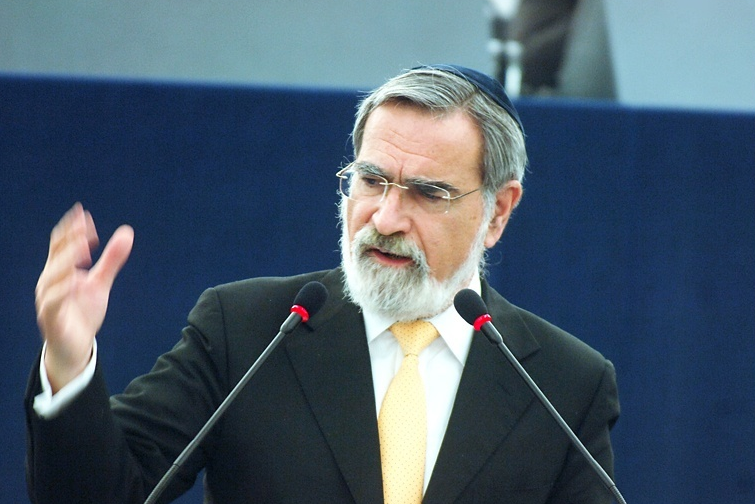The task of uniting his co-religionists paled, of course, beside the collapse of society, but this too he had to address. Every man and woman had a duty to care for others, and thus to recreate the bonds that held society together. "I" had to give way to "we". Out of great crises—climate change, coronavirus—that chance might come. Ideally religion could drive this change, with the world's faiths uniting, as they had done, imams and gurus, priests and rabbis, at Ground Zero that day. But his argument in "The Dignity of Difference" that all the major religions were equally valid ways to truth had caused even more trouble with the Haredi. Instead, in his last book, he called for a shared morality: agreed norms of behaviour, mutual trust, altruism, and a sense of "all-of-us-together".

The liberty craved by "me" could be sustained only by "us". It was a very long shot, but he was not a pessimist. Part of his job was to cheer people up, and he liked to wear a yellow tie, like sunshine, for his public lectures. If he felt depressed, music soon lifted him out of it. So, too, did his studies. If he was stranded on a desert island, he told a BBC interviewer, he hoped it could be with all 20 volumes of the Talmud and plenty of pencils, in order to write commentaries in the margins. Meanwhile, thinking and writing in his garden study in Golders Green, with or without his invaluable earphones, he could escape the shouting world a little.
On a visit he made once to Auschwitz, as he wept and asked, like so many others, where God had been in the Holocaust, he seemed to hear an answer: "I was in the words." The words were "You shall not murder." If human beings refused to listen to God, even he was helpless. But if much of the noise that humans made could be cancelled out, they might more often hear what He was saying.
译文由可可原创,仅供学习交流使用,未经许可请勿转载。












